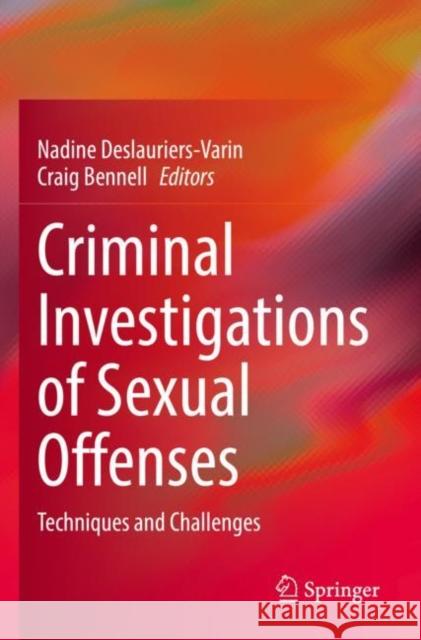Criminal Investigations of Sexual Offenses: Techniques and Challenges » książka
Criminal Investigations of Sexual Offenses: Techniques and Challenges
ISBN-13: 9783030799700 / Angielski / Miękka / 2022 / 274 str.
Criminal Investigations of Sexual Offenses: Techniques and Challenges
ISBN-13: 9783030799700 / Angielski / Miękka / 2022 / 274 str.
(netto: 536,72 VAT: 5%)
Najniższa cena z 30 dni: 539,74
ok. 22 dni roboczych.
Darmowa dostawa!
It is startling to read how few sexual offenses are reported in a year; even more shocking to see how few reports lead to an arrest. Research on effective responses to sexual offenses is much needed and ongoing. This edited book presents the current state of research on investigative techniques used in sex crime investigations, and the operational challenges and issues that arise in these investigations. Including an international cohort of scholars from various academic backgrounds, it reviews current efforts in key areas, synthesizing the research to make recommendations for the improvement of investigative practices and the criminal justice system’s response to sexual offenses.Each chapter includes a brief introduction to the topic, a review of the research, and a discussion of the key points relevant to investigators and researchers as they move forward. The book is broken down into four themes: suspect prioritization and identification techniques, investigative interviewing, operational challenges and issues, and the investigation of specific types of sex crimes.With its broad coverage and international scope, this volume fills the gap in knowledge for investigators working on sex crimes cases. With its easy-to-read style and clear analysis of the research, this is the perfect volume for investigators and law enforcement officers, policy makers and researchers, and students in criminology and criminal justice, forensic psychology, and victim services.
It is startling to read how few sexual offenses are reported in a year; even more shocking to see how few reports lead to an arrest. Research on effective responses to sexual offenses is much needed and ongoing. This edited book presents the current state of research on investigative techniques used in sex crime investigations, and the operational challenges and issues that arise in these investigations. Including an international cohort of scholars from various academic backgrounds, it reviews current efforts in key areas, synthesizing the research to make recommendations for the improvement of investigative practices and the criminal justice system’s response to sexual offenses.Each chapter includes a brief introduction to the topic, a review of the research, and a discussion of the key points relevant to investigators and researchers as they move forward. The book is broken down into four themes: suspect prioritization and identification techniques, investigative interviewing, operational challenges and issues, and the investigation of specific types of sex crimes.With its broad coverage and international scope, this volume fills the gap in knowledge for investigators working on sex crimes cases. With its easy-to-read style and clear analysis of the research, this is the perfect volume for investigators and law enforcement officers, policy makers and researchers, and students in criminology and criminal justice, forensic psychology, and victim services.











